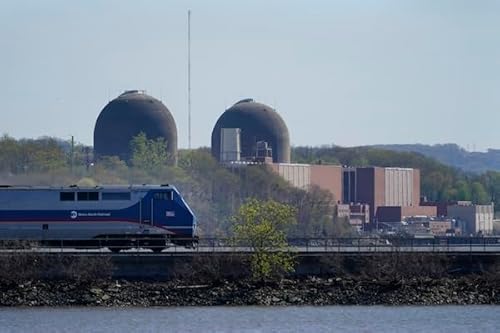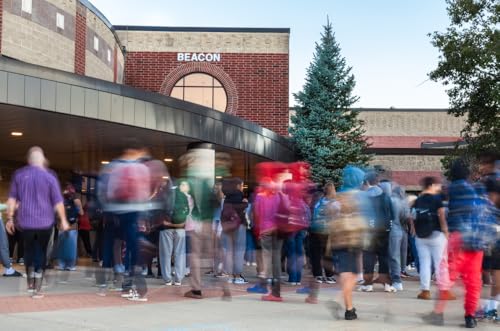Despite legal barriers, persistent talk about restart
When the Indian Point nuclear power plant south of Philipstown shut down in 2021, its legal obligations were clear: It could not restart, nor could any new nuclear power be generated there, without the unanimous consent of the Village of Buchanan, the Town of Cortlandt, Westchester County, New York State and the Hendrick Hudson School District.
Despite that high bar, the insistence by county and state officials that they will never allow nuclear power to be generated at the site, and the fact that the plant is being dismantled, the possibility of Indian Point reopening continues to surface.
The question came up again at the Feb. 19 meeting of the Indian Point Decommissioning Oversight Board (DOB) after a video was posted online of a plant worker saying that the decommissioning of one part of the plant was on hold due to a possible restart.
The video was shot by Andrew Walker, aka Radioactive Drew. On his YouTube channel, which has nearly 100,000 subscribers, Walker shares his documentaries about the world's most radioactive places. In a three-part video that premiered last month, Walker was given a tour of Indian Point by two longtime employees.
When visiting the turbines at Reactor 3, Walker asks Brent Magurno, a radiation protection supervisor, "With the whole possible restart that's on the table of this place happening, no work has been done to take these out of service, right?"
"Initially, yes," said Magurno. "But then we stopped once the question was asked about restarting, and so we're not proceeding until we get the final answer on that on this side of the plant."
A few minutes later, decommissioning supervisor Brian Vangor noted that, because of an ongoing legal dispute over whether Holtec can discharge radioactive wastewater into the Hudson River, some equipment the plant could theoretically use if it were to reopen remains in place.
"Many more things would be taken apart if the water in some of those pools I told you about was gone," he said. "New York State did us a little bit of a favor. Rare, but they did us a favor."
Holtec International, the company responsible for decommissioning, has said it has no plans to reopen Indian Point. When DOB chair Tom Congdon asked Holtec's Matt Johnson at the Feb. 19 meeting if the video meant its plans had changed, he replied that Magurno's comment was "categorically false and incorrect."
"We have not started work on the turbines based on our schedule and our resources," Johnson said. "My opinion is that it was somebody who was excited and showing our plant and maybe got a little ahead of himself and used a poor choice of words, so that is not what Holtec intends to put out there."
Johnson said that he did not know when the turbines were scheduled for removal, but that it would not be in the next year.
"We don't have any plans to restart at this time," he said. "If for some reason that came about, obviously there would be major changes to decommissioning, because we wouldn't be able to do that with funds from the decommissioning trust fund."
Dana Levenberg, a state Assembly Member who sits on the board and whose district includes Philipstown, said that "this kind of stuff obviously makes the community trust you less."
"You tell us one thing at the DOB meeting, and then we hear something else in a video, and people go crazy," she said. "We don't need that. We need reassurances and assurances and proof on paper, in writing, signed documents that says what your plan is, when you're going to do this, when you're going to do that, and you need to stick to it."
In September, Kelly Trice, the president of Holtec International, said that Indian Point could be restarted in four years for $8 billion to $10 billion. At a DOB meeting a few weeks later, Holtec's Patrick O'Brien said that Trice was speaking theoretically because the federal Department of Energy had asked all shuttered nuclear plants for estimates of what it would take ...
Show more
Show less
 Feb 27 20267 mins
Feb 27 20267 mins Feb 27 20264 mins
Feb 27 20264 mins Feb 27 20264 mins
Feb 27 20264 mins Feb 27 20266 mins
Feb 27 20266 mins Feb 24 20264 mins
Feb 24 20264 mins Feb 21 20268 mins
Feb 21 20268 mins Feb 21 202614 mins
Feb 21 202614 mins

